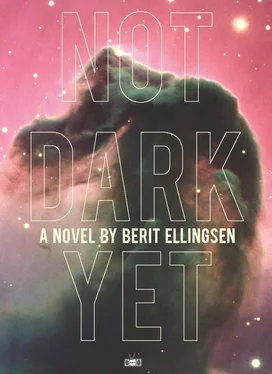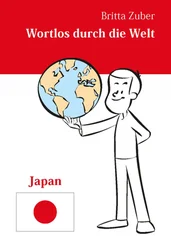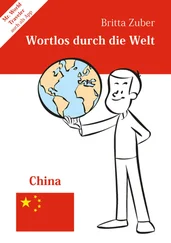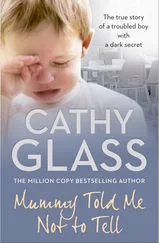He kept fleeing from the cosmic radiation, and then Michael was there, inviting him home. He suspected that Michael was still hurt by his unfaithfulness and moving to the cabin, but he pretended not to notice and followed Michael down to the basement. There, Michael’s parents were waiting for them. Michael handed him a folded note ruled in blue, like a school notebook. The note displayed Michael’s phone number in black ink. He stared at the digits, but they were blurry and morphed fluidly
into other numbers, even when he folded the note and opened it again for closer inspection.
Michael then showed him pages of a comic book story he had been working on, and with visible pride handed him sheet after sheet of drawn panels. He didn’t know Michael could draw, or even that he liked comic books, and took in the artwork with surprise. The pages were as mutable and fuzzy as the phone number on the note, but he squinted and rotated the sheets to make as much sense of them as possible. His skin still burned so he knew they weren’t safe, but he hoped the lunar rays were like alpha radiation, as long as they had something thicker than a sheet of paper between them and the source, the damage was reduced.
The fluid, metamorphosing panels of Michael’s artwork contained black and white drawings of city buildings, a leafless forest, a blank sky, and tiny figures that were searching for something that was just around the corner from them, behind nearby trees, or beneath the gravel on the ground. The characters were so small he couldn’t make out their faces or tell them apart, and although he tried to grasp the story by reading the panels over and over, they shifted and changed like the lunar flares, and he was at a loss of understanding what the story was about.
“It’s wonderful,” he lied, “thank you for showing it to me,” and handed the sheets back to Michael.
Michael was smiling broadly, looking boundlessly happy, as if he had asked him for marriage. Above them the air rumbled and shrieked as the rays from the moon pierced the heavens and the roof and their flesh.
He woke in the hotel room the space organization had billeted them in. Sweating, he threw the lumpy duvet aside, but did not get up to avoid disturbing the candidate who slept in the bed on the other side of the room. Even through the curtains the windows were pale and gray. With the hotel being situated by the sea, the management had apparently chosen diaphanous fabrics and sunny dawns to double-lined drapery and darkness for restful sleep. The sun was still not up, but close.
The previous day the tests had continued until five in the afternoon, then the space organization’s representative had taken them back to the foyer with the star-gleaming floor. A large coach had pulled up outside the front and taken them to one of the many hotels along the beach outside the city center. It had been dark when they arrived, but the fifteen-floor building was lit by orange floodlights and stood like a shining pillar among the grass-tufted dunes. Less than twenty meters from the broad stairs and entrance, which were also flooded with orange light, the ocean rolled slow waves ashore, and the smell of the sea and the sand granted a fleeting illusion of summer.
In the reception and in the restaurant at dinner they encountered only a few other guests, two middle-aged couples traveling together, a small group of senior citizens on tour with a guide, and a cluster of visitors from the western continent who talked loudly and laughed even louder, and left the next morning in two minibuses. Other than them the hotel was cold and empty and seemed to be waiting quietly for warmer weather and busier times.
ON THE SECOND DAY AT THE ASTRONAUT TRAINING center he was prepared for more mathematical, perception, attention, and intelligence tests, but when the candidates were gathered in the small foyer in the morning, the representative informed them that the time would be used for medical and psychological tests. Some in the group exchanged glances.
As the previous day, the representative led them past the hallway with the mezzanine and spectrum of banners, through the narrow corridors, to the room with the desks and the monitors. There she presented them with the tasks at hand:
“Today we will be asking you questions about your past and present health, and also the health of your closest family members in order to rule out certain hereditary diseases. These questions may feel uncomfortable and you are not obliged to fill out the form, but unless we know a little bit about you and your family’s medical history, it will be very difficult to assess you.”
“You may refuse to answer the questions, but it’ll cost you the spot in the program,” one candidate muttered.
“These tests are not timed so you may leave for small breaks or lunch whenever you wish,” the representative continued. “I recommend that you save your progress in the tests so you don’t lose any data during the break. Good luck, everyone, and feel free to ask if you have any questions.”
The first document was a medical questionnaire where he filled out his name, address, phone number, email address, and birth date. He then ticked boxes to answer whether he had undergone recent surgery and for what illness or injury, if he had any chronic diseases or allergies and describe them, whether he had had any serious illnesses such as cancer, stroke, or heart problems as a teenager or as an adult, and what infectious and other diseases and health issues he had experienced as a child. He typed, “broken fingers, right hand,” for recent surgery, and ticked off none for chronic diseases, as well as chickenpox, influenza, middle ear infection, and colds under childhood ailments, and colds for adult infectious diseases. The questionnaire reminded him of those he had filled out for his military service and health insurance, but were more exhaustive and took longer to complete.
“Let’s hope this test stays with the space organization,” one of the candidates behind him murmured.
“I was just thinking the same thing,” the person next to her replied.
The second questionnaire was even more detailed and invasive. It contained almost the same categories and questions as the first test, but this time pertaining to his immediate family: parents, siblings, and children. Even grandparents were included in the list.
“Are they really allowed to ask about our families’ health?” one candidate said so loudly everyone could hear it. The representative had left them to the tests. “It’s not like we’re inbred or anything.”
“This is not just about present diseases,” another candidate replied. “Common health issues like diabetes and certain cancers also have a large hereditary component to them, and they want to know how likely we are to develop those in the future.”
“I’m not going to tell them anything,” a third person said. “I have no right to give out detailed information about other people’s health.” Several candidates expressed their agreement.
He started to fill out the form, slowly and hesitantly, and not only because he wasn’t certain what diseases his brother had had when they were small, and even less so his parents, but whether he really ought to report on the health of his family without their consent. If he lied, or pretended that he didn’t know or remember what diseases the members of his family had contracted in the past, would the space organization track down the correct information from medical records anyway?
He simply didn’t know, so he filled out the form for his family’s medical history as correctly, but also as vaguely, as he could. Sprained thumb, chickenpox, mumps, influenza, and cold he ticked off for his younger brother. As far as he knew and could remember none of his immediate family had suffered any serious diseases or injuries when they grew up, and if they currently did, they hadn’t told him about it. For his parents he could only fill out influenza and cold as he assumed they had experienced that as children, but he didn’t know of anything more. He was even less familiar with the health status of his grandparents in the past, but ticked high blood pressure for his maternal grandfather and type two diabetes for his paternal grandmother.
Читать дальше












